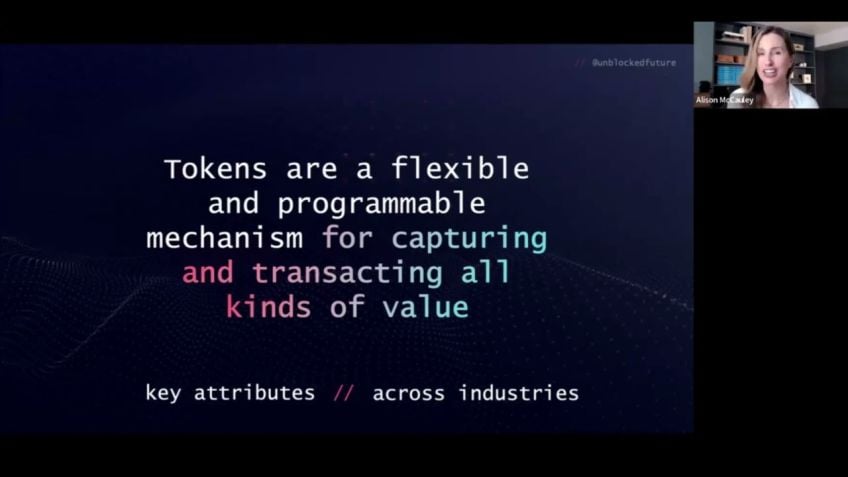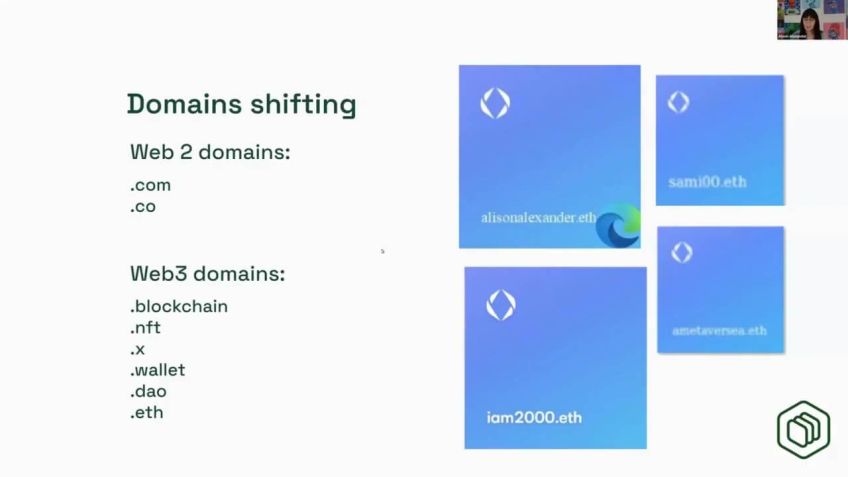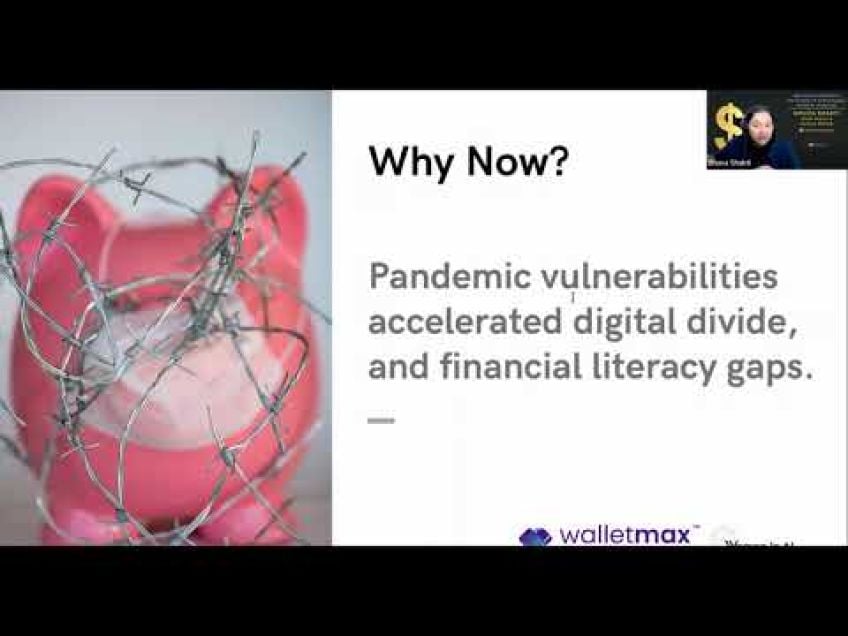Cryptocurrency and Nonprofits Organization. Blockchain is game changer.
Kate Koraia
VP of TechBlockchain Technology: A New Frontier in Nonprofit Donations
Blockchain technology is steadily disrupting various sectors of our economy. One key area witnessing significant impact is the non-profit sector, with organizations exploring ways to leverage this technology for crypto donations. This method is not only transforming the way nonprofits raise funds, but it is also creating promising opportunities for them to create substantial impacts in society.
About the Presenter
My name is Kate Kaya, the co-founder of Bi-beta, a fintech startup. At Bi-beta, we aid nonprofits in accepting crypto donations, instantly converting them into USD, and safely transferring them into their bank accounts. We also provide automating back-end accounting and financial data services. I am passionate about serving nonprofits, and I possess more than a decade of extensive experience in the field. Besides, I have advanced knowledge in Blockchain technology and Artificial intelligence, having attended an executive program at MIT.
The Buzz about Crypto Donations
The growth and popularity of crypto donations have been colossal over the years. Data from blockchain-oriented fundraising platforms like Giving Block reveals that these donations have taken a 500% leap in transaction value over the past couple of years. Why the growth? Various factors propel this trend, key among them being the tax benefits donors accrue. Donors are exempted from paying taxes on gains or losses for cryptocurrency donations.
Nonprofits accepting crypto donations are not only tapping into this rapidly growing pool of funds, but they are also opening up to a broader donor base. Studies reveal that 83% of millennials and Gen Z are more likely to donate in crypto. These demographics are driven by a passion for technology, noble causes, and the need to make a meaningful impact on society.
Embracing the Power of Cryptocurrency Donations
The Potential of Crypto Donations
Nonprofits have a lot to gain by venturing into the world of crypto donations. However, this move requires expertise and understanding to navigate the relatively volatile nature of cryptocurrencies. This article outlines essential information nonprofits must consider:
- Formulating a written policy to accept crypto donations
- Understanding the tax implications for the organization and the donor
- Becoming aware of the pros and cons of accepting cryptocurrency
Advantages and Disadvantages of Accepting Cryptocurrency Donations
- Pros: Crypto donations are borderless, allowing organizations to receive funds from anywhere worldwide. They appeal to a younger donor base, ensuring a secure, fast, and increasingly substantial source of funding.
- Cons: Environmental concerns over the high energy consumption associated with cryptocurrency mining persist. Additionally, cryptocurrencies operate in an unregulated market and are highly volatile; therefore, nonprofits are encouraged to convert donations into their local currency immediately.
Key Takeaways
For nonprofits, cryptocurrencies represent a substantial future donation source. They attract a young donor base and offer potential tax benefits. Therefore, it is essential for nonprofits to be prepared by understanding the relevant accounting and auditing requirements. Additionally, nonprofits need to be aware of the tax implications and have clear gift acceptance policies.
If you have any questions or seek further clarification, feel free to reach out to me. I remain committed to helping nonprofits demystify crypto donations, enabling them to leverage this new revenue stream for the betterment of our society.
Video Transcription
Um Hello everyone. Uh It is a new era of the disturbing technology called Blockchain technology. I'm sure by now, everybody is um at least hear about Blockchain technology.And uh today, I will be um honored to present this um pre presentation, the new frontier, how nonprofits are expanding into crypto donations and how this new revenue stream um makes um them uh new uh opportunities to make a difference and impact and make this world a little bit of a better place for all of us.
Uh With that said, um I will just quickly go over, who am I? So, my name is Kate Kaya. I'm AC O and co-founder of Bi beta. Uh bi beta is the um early start up fintech uh technology company. Uh I found it uh last year and we help non for profit organizations to accept crypto donations to us. D instantaneously convert it into us D and then deposit to their bank account. And on top of that, we do uh entire like back end accounting and financial data automation. I'm a uh definitely visionary have been working with uh non for profits uh slightly more than a decade. I'm a CPA and MB A from top tier universities. Uh I went to the last time I went to MIT, where I got my uh Blockchain um technology and Artificial Intelligence, deep uh uh program knowledge, executive program knowledge. And uh this is my passion. So I, I have a passion in technology. I uh serve not for profits and I want to transfer my knowledge and uh give them this opportunity to know what is going on in new disturbing um uh era. Uh like what Blockchain technology can do and how we can utilize it. Um I'm also mom of three kids, three beautiful kids and uh two dogs living in New York. Um So today's agenda, what we will discuss is following. Uh I want to uh get the awareness of how not for profits can benefit from crypto donations.
We will go over uh non for profits, hold or not to hold crypto in their assets because we know crypto is volatile. Um non for profit accounting, auditing and tax consideration. I know this part is like a very sensitive and including the regulation. I will touch base a little bit on that. And uh last and not, not least one will be the key takeaways. So uh how, how, how nonprofits can benefit from crypto. Uh I have to say that over the last uh period, last couple years, we have seen almost like a 500% increase in crypto transactions value and it can be included on the global uh fundraising crypto company like giving blog, gave us some data and also donor perfect funds as well.
It is wide as increasing because it has from donors perspective, it has a tax benefit. So that's what it drives to donating crypto. If I donate as a donor, let's say $100,000 worth of crypto, I don't have to pay taxes on the gain on loss. So that drives from the donor's perspective. And obviously, they believe in a cause and they want to support uh the giving block uh reported $2.4 million value only in one day. That's how fast it is growing. And the most important part is that obviously like uh 83% of millennials and Gen Z uh donates crypto and they, they are very open to that, right? So, any, I, I actually have a very a detailed research from Harvard Business School that uh uh anybody earning 100 more than 100 and 20 k is willing to give, which is uh amazing, right? There is already listed a lot of nonprofits on the right side. We can see uh ST Jude's Children's Hospital American Cancer Society, save the Children, many non for profits already open and they already accepting crypto donations. However, uh this presentation also goes hand to hand with uh all the nonprofits around the world knowing that uh this is the like new opportunity to receive the new revenue stream and make a change and make an impact society. Um This is prediction.
I want to uh go over some predictions. So, uh the research was done from again, the global uh fund crypto fundraising company called Giving Block. Uh And uh they also worked hand to hand with the donor uh Perfect Fund uh research group and other charitable organizations. Uh average crypto size of which will be very uh um I guess um not shocking but maybe shocking, right? So 6000 $295 was average size of tax optimized Cryptocurrency donations and 26,000. If you compare 26,000 to the dollar value, the cash value donations received from the last year 2021 it was only 100 and $28. So it's a huge uh value difference right? There, there is like prediction also that in year 20 27/1 billion will be donated all the time. And in by year tw 2034 we're expecting to receive 10 billion donated in a single calendar here. So we can see the huge uh wave and increase into digital assets and crypto donations. There is obviously also wanted to touch base on the other ways to donate the other ways donate from related to the uh crypto uh asset, digital assets. We uh know it's called NFT non tangible tokens. So any artist can uh create the art and they can uh deploy it with the call it smart contract, deploy it.
And through the uh distributed ledger technology, which called also on the other hand, the Blockchain technology and um um have it like donated to the nonprofit with the fair market value and it can be sold and converted into us D but uh I have just seen like uh I went to consensus like last week.
It's the biggest Blockchain crypto uh conference in the world. It was in Austin, Texas and I met San Jude's Hospital um representatives there. They had already developed their own non tangible ton and they are like developing it further. And as they develop this non tangible token NFT, they also do the fundraising um like looking forward and they have told us uh our team that it has since they started accepting crypto donations, they have received up to 4.5 million and those are the changing um our children's life.
So I just wanted to touch base on this um the next uh slide. I it's uh it's really very close to my heart because it's my customer story. Um They save uh journalists in a war, hot, hot war zone areas like Afghanistan and um now in Ukraine, uh I'm sure everybody globally knows this um uh devastated uh moment is still going on in the world. And um they have started accepting uh crypto donations since November 2021. And in a single one year, they raised up to $1 million and received in $1 million crypto donations. And uh obviously, they are utilizing uh third party vendor and this donation amount was almost like 15% of the total revenue they are usually getting from the donations, which is like not a small part. Uh But what I want to say here is that if this 1 million uh saved, let's say five journalists life in this hot zone area that it's worth it. I guess everybody will agree with me that. Absolutely. Yes. Um Let's now touch base a little bit on them, accounting and auditing and tax site.
So, um nonprofits, we highly recommend that uh you must have a former written policy to accept crypto donations and it's very uh we can say it's very similar to stock donation policy, but it needs to be alerted and matched like uh what we need to disclose from crypto and digital assets perspective because there is different rulings from.
Oops, I apologize. Um It's different uh uh rulings from IRS from FA SP. So we have like um different authorities giving us different um perspectives on digital assets. Uh crypto assets are currently defined as an intangible assets from accounting perspective. And it is uh being like rules being established by A I CPA seafsb. They have a joint working accounting and auditing Digital asset group. Um It has obviously audit implications for um we know that not for profit don't pay taxes, but every year, they have to report and they have to fill out their audit um financials and uh uh issue the 990 form for IRS which has clearly uh defined where we have to also report the transactions on digital assets.
Um NFP uh non for profits, account for sales of crypto or other as in other income. And obviously any gain or loss presented by this uh gain um other income uh will be reported as net on their books. Um tax implications and we're gonna represent this from like a a different perspective, right from IRS guidance uh from donors perspective and from a non for profit perspective, if they let's say received an FT or they received the crypto donation, then they hold it in their assets from IRS Guidance says that Cryptocurrency falls under the property category which uh the capital gains and losses and it has to be obviously reported on schedule a taxpayer who receives Cryptocurrency as a payment must account for the fair market value with calculating gross income.
And this was just change in October 2022. It is very recent guidance and change um from reporting perspective because it was before at historical cost and it was obviously uh making huge gain and loss swamp between reporting um on Cryptocurrency in your books. Uh What about donor?
So if I am a donor, um I can claim as a tax deduction from the charitable organization and charitable organization must provide to me the acknowledgment or sometimes they call it tax letter that how much I donated. And then donation amount indicates obviously some requirements we have to file for the tax deduction purpose. Uh NFTS for selling per cryptos uh uh non for profit, selling for selling uh for crypto. So, uh sales uh obviously resulting in uh in gain or, and uh it's also um uh subject to unrelated business income tax. And if nfps need to file IRS form 8282 it is it only if they sold the Cryptocurrency from their books. Uh some pros and cons to accepting Cryptocurrency, obviously, the thumbs up because it's a substantial and increasing source of funding and it's a border less, right? So you can uh have a global reach. You don't need to be in specific country, attracts younger donor base, which we have already discussed as well. And this is accessible, secure and fast. And I know that for users anything better, quicker, faster, it has massive adoption on the, on the um con side. I we could definitely and everybody already hears probably it's an environmental concern, the energy is taken, but there is also some changes related to that probably later news that uh Ethereum um like on Ether, they just change from proof of work to proof of stake which uh utilize now much less energy.
So they are hard working, very hard to that unregulated space and market. This applies to every single country around the world and specifically, and United States. So uh there is like legislators um still working and um uh defining uh the space and um working very hard and it's um it's definitely not easy but um a lot of uh good lawyers, CPA S like me, we're working directly with government too, understand and um have a same basis for understanding what is digital assets and how we want to treat it.
And obviously another con is the high market volatility. So that's why we always suggest that do not hold it in your books, but rather sell it, like convert it into us d or into your local currency immediately. Uh With that said, I think our last part is the key takeaways from this presentation. Uh Number one is uh cryptocurrencies are the future and attract young donor base. So be alerted, crypto donors can be good while benefiting from tax deductions. I think I also highlighted multiple times on this, that donors are motivating, not from the cause and uh making impact, but it's also like tax deductible. And one more thing I know that donors um like myself when they see also where our money goes in real time and what impact we make and Blockchain technology allows that to happen in real time. Obviously, we want to donate more and it's really win, win, win situation for both prospective donor and not for profit. Another part is be prepared. I truly suggest all nonprofits all around the world be prepared. Don't wait until a donor approaches you and says I want to donate and you don't know what to do, review applicable accounting, auditing requirements and fast changing uh space. This is uh this will continue and we just have to be real alerted.
Like I mentioned, we have to have a gift crypto digital asset donation policy in place. And uh also follow up with all the new guidance from FSB or A I CPA. And last but not least one, it needs to be aware of the tax implications and gives acceptance policies again. And uh with that said, I want to thank you everyone. And uh if time allows us, which is exactly time, I'll be accepting some questions or if anybody wants to reach me directly, here is my cure code and email address and phone number. Thank you. Let me review questions if any. Ok.






